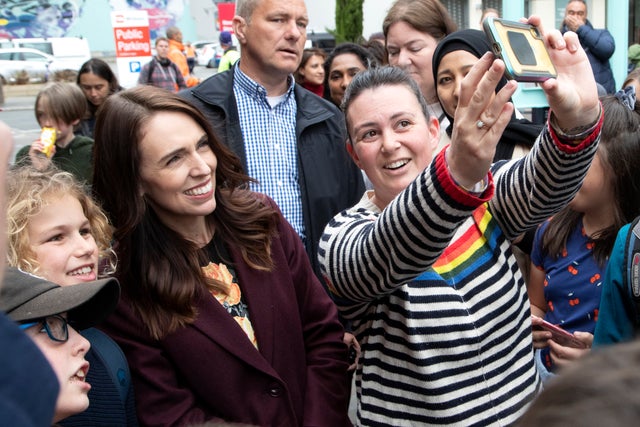The trick with Jacinda Ardern is that it isn’t a trick. I once thought it might be. I now want a hug from Jacinda before I die.
This permanent change comes from a place of shame. During my non-believer phase, circa March 2017, I spotted Ardern at a St Patrick’s Day festival of fiddly-dee songs. Probably in the way retired All Blacks players bore the new caps, I decided to give Ardern the benefit of my inglorious three years’ experience as an MP.
Ardern had just been made deputy leader of the Labor Party. Conflict-addicted media were amping for Ardern’s debating chamber debut in the new role. I gave her golden counsel: rip the Tories a new one, claret on the carpet, and biffo. Without a hint of annoyance or judgment, Ardern rejected my suggestions with: “That’s just not who I am.”
It still isn’t. She counters false claims with facts and logic and often a devastating smile, but she never humiliates opponents. When asked what the key requirement for leadership is, she says kindness. With positivity a close second.
For the latest New Zealand election, held on Saturday, Ardern ran an unrelentingly positive and well-strategized campaign, yet again, which saw history made. Labor won by the greatest margin of any prime minister under the Mixed Member Proportional (MMP) system. It is a system designed for coalitions, not for one party having the ability to govern alone.
And younger voters are back in the democratic frame, enrolling in historic numbers. Their media is social, and mainstream media commentators are yesterday’s people. Last night many of them looked put out by the landslide for Labor and continued with the notion that Ardern is mostly a good talker. That she has delivered nothing during her first term other than managing crises well. What the actual, and even if that were the case, it has been extraordinarily beneficial that tempers were held, and communities strengthened, during a white supremacist terror attack on New Zealanders at two Christchurch mosques.
Likewise, it was vital that the Prime Minister was straight to the scene to support rescuers and medical staff when the Whakaari/White Island volcano erupted, killing 21 people and injuring more, both locals and visitors to New Zealand.
And then there was and is the COVID-19 pandemic. Ardern made a call mid-March to close the border, then started educating Kiwis on a four-level alert system to contain the virus. By March 25 there was a complete lockdown. On the first night, she checked in with everyone from Premier House in what is now a famous outfit: a sweatshirt and casual pants. Over the next weeks, Ardern and the Health Department chief executive, Ashley Bloomfield, appeared at a set time every day to update New Zealanders. They were a winning double act of policy and science, and New Zealanders watched them for information rather than relying on news services.
Global health groups have credited the clear communications, early warnings, and repetition of information as a huge part of Ardern’s successful COVID-19 strategy.
So she’s been busy enough but the talk of non-delivery is a lie. Jacinda has led the Labor Party to make numerous improvements in New Zealand in the past three years. Too many to list. In short, they come under the heading of not judging the economy by how well rich people are doing.
In many ways, the Ardern philosophy is in part the modern version of former NZ prime minister Norman Kirk’s belief that everyone deserves a job, somewhere to live, someone to love and something to hope for.
Jacinda has vastly upped the nation’s view of politics, while emphasizing that citizens have responsibilities as well as rights. She said last night that while the rest of the world’s central party politics had divided people, there was no need for elections to tear New Zealand apart. And she pledged to govern for every New Zealander. Potential coalitions weren’t mentioned, but the government’s partnership with the people was.
An attitude that says it all for me, in terms of being outdated, was the concession address by the defeated National Party leader Judith Collins, who opened in English. Ardern always starts her speeches in Maori, an official language of New Zealand. She is called Aunty Cindy by many in Maoridom as a sign of affinity and high regard.
A landslide majority for Labor shows that New Zealanders want what Ardern has got. A sense of obligation to uplift the standing of others through respect and empathy, co-operation and the need to be prepared and to think ahead. Manaakitanga, mahitaki, and kawea ake, respectively.
*The writer is a New Zealand-born, journalist, radio broadcaster and documentary-maker based in Australia. She was a member of Parliament in New Zealand.
October 20, 2020
The viewpoints expressed by the authors do not necessarily reflect the opinions, viewpoints and editorial policies of Aequitas Review.


